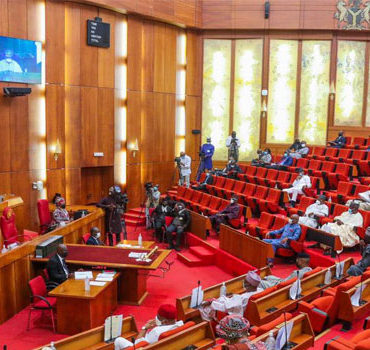Be the First to Know: On Right of an Employee to Salaries During Suspension

Lawyard is a legal media and services platform that provides…
TITLE: Will a Suspended Employee Be Entitled to Wages/Emoluments During the Period of Suspension
CASE TITLE: GLOBE MOTORS HOLDINGS NIGERIA LIMITED v. AKINYEMI ADEGOKE OYEWOLE (2022) LPELR-56856(CA)
JUDGMENT DATE: 23RD FEBRUARY, 2022
JUSTICES: OBIETONBARA OWUPELE DANIEL-KALIO, JCA
MUHAMMAD IBRAHIM SIRAJO, JCA
ADEBUKUNOLA ADEOTI IBIRONKE BANJOKO, JCA
COURT DIVISION LAGOS
PRACTICE AREA: Labour Law- Suspension from Employment
FACTS:
The Respondent was employed by the Appellant as an Auto Mechanic on the 2nd September, 1999 and was later appointed as the foreman of its Honda section on 1st March, 2005. On 11th September, 2007, the Respondent was placed on indefinite suspension vide a letter. He was neither recalled from the indefinite suspension nor was his appointment formally terminated by the Appellant.
The Respondent decided to approach the Citizens Mediation Centre of the Lagos State Ministry of Justice with his complaint on 25th October, 2011. The Centre’s invitation to the Appellant was not responded to. The Respondent also sought the legal assistance of the Office of Public Defender where he sent a Petition against indefinite suspension. The Office of Public Defender invited the Managing Director of the Appellant for a meeting but the meeting did not yield any result. This prompted the filing of an action at the National Industrial Court by the Office of Public Defender in which the Respondent as Claimant sought for salary arrears and general damages.
In its considered judgment, the trial Court found partly in favor of the Respondent and awarded the sum of N554,190.00 as unpaid salary from 2007 to the date of the judgment.
Aggrieved, the Appellant appealed.
ISSUES FOR DETERMINATION
The appeal was determined upon consideration of the issues thus:
- Whether the learned trial Court was right in ordering the Appellant to pay the judgment sum within 30 days of the trial Court’s judgment contrary to the Appellant’s 90 days provided by statute time to appeal.
- Whether the issue of the length of time when the Claimant/Respondent was indefinitely suspended should be with pay or without pay was suo motu raised by the learned trial Court and if so whether it is justifiable to have done so without giving the Defendant/Appellant the opportunity to address the Court on the issue before giving judgment based on the issue.
COUNSEL SUBMISSIONS
Learned Counsel for the Appellant submitted that the import of Section 17 (1) (b) of the Labour Act is that the employer shall not be bound to pay wages during the period of suspension where the worker was suspended from work as punishment for breach of discipline or any other offence. That the indefinite suspension of the Respondent was as a result of his penchant for disobedience to the rules of the Appellant company and his lackadaisical attitude to work.
He contended that the order of the trial Court that the judgment sum shall be paid within 30 days amounts to denying the Appellant her constitutional right of appeal. That the order of the Court is a ploy to deny the Appellant of his right of appeal and fair hearing.
In response, Learned Counsel for the Respondent submitted that the power of an employer to suspend a worker without pay must stem from the contract of employment of such worker, and in the absence of such term in an employee’s contract of employment, the employer has a statutory duty to continue the payment of wages of such worker during his suspension. That the suspension of a worker cannot imply the diminution of his lawfully entitled wages
Counsel submitted that the direction of the trial Court that the judgment sum be paid within 30 days has in no way deprived the Appellant of his constitutional right of appeal in that judgment takes effect on the day it is pronounced and the judgment debt becomes due and payable immediately, unless a future date is fixed by the Court.
DECISION/HELD
In the final analysis, the Court of Appeal affirmed the decision of the National Industrial Court and consequently dismissed the appeal.
RATIO
- LABOUR LAW- SUSPENSION FROM EMPLOYMENT: Whether a suspended employee is entitled to his wages/emoluments during the period of suspension –
“Since suspension is not a termination of the employment contract nor a dismissal of the employee, the implication is that the employee is still in continuous employment of the employer until he is recalled or formally terminated or dismissed. Pending his recall or dismissal, a suspended employee is entitled to his wages or salary during the period of suspension, unless the terms of the contract of employment or the letter of suspension itself is specific that the suspended employer will not be paid salaries during the period of suspension. In the instant appeal, the letter suspending the Respondent, Exhibit B3, did not state that the Respondent will not be paid salaries. The letter of employment, Exhibit B1, did not contain any terms with respect to suspension of the employee without pay. Furthermore, there is no Employees’ Handbook or collective agreement specifying the terms of employment, including rules with regards to suspension, indefinite or for a fixed term. Where a suspension did not indicate that the suspended employer will not be paid salary or will be on half pay, the suspended employer is entitled to his emoluments during the period of the suspension.
In justifying the indefinite suspension of the Respondent without pay, learned counsel placed heavy reliance on Section 17 (1) (b) of the Labour Act, 2004. I wish to state that Section 17 (1) (b) of the Labour Act cannot aid the Appellant. The section deals with the provision of work by the employer and the consequences of not providing work to an employee due to an emergency. In an emergency, where no work is provided, the employer is still obligated to pay wages to the worker except where the worker is on suspension during that period of emergency. The interpretation placed on that section of the Labour Act by learned counsel for the Appellant is utterly wrong. In Longe vs F.B.N. Plc (supra), the Supreme Court had this to say on the import of suspension of an employee: “Admittedly, an employer suspending his employee may impose terms of the suspension but in a general sense suspension of an employee from work only means the suspension of the employee from performance of the ordinary duties assigned to him by virtue of his office. Suspension is not a demotion and does not entail a diminution of rank, office or position. Certainly, it cannot import a diminution of the rights of the employee given under the law.” The basic and most important right of an employee is the right to his wages, and by the above quoted decision, the Appellant is obligated to pay the Respondent his wages during the period of suspension as his right to the wages has not been affected by the indefinite suspension. This point was further emphasized by this Court in the case of Bamisile vs. NJC & Ors (2012) LPELR-8381 (CA).” Per SIRAJO, J.C.A.
- LABOUR LAW- SUSPENSION FROM EMPLOYMENT: Meaning and nature of suspension; whether suspension is the same as termination of employment
“The question concerns the status of an employee who has been suspended from his employment either for a fixed term or indefinitely, as the Respondent in this appeal. Suspension is a temporary cessation of employment either pending investigation for an alleged wrong or as a disciplinary procedure for misconduct by the employee. These are the two types of suspension. Suspension of an employee from work only means suspension from ordinary duties assigned to him by virtue of his employment or office. See Esiaga vs. University of Calabar (2004) LPELR-1169 (SC); Akinyanju vs. University of Ilorin (2005) 7 NWLR (Pt.923) 87; National Judicial Council vs Aladejana (2014) LPELR-24134 (CA). Either pending investigation or as a punishment, suspension does not amount to termination or dismissal from the employment, the contract of employment remains subsisting until it is formally or legally brought to an end by either party. In this light, I discountenance the submission of the Appellant urging the Court to hold that the suspension of the Respondent amounts to termination of his appointment. Suspension and termination are two distinct terms with different legal consequences, one cannot be a substitute or synonymous with the other. Under the common law, a right to suspend an employee is not an implied term of an employment contract. Therefore, where a contract of employment is not one with statutory flavour, for suspension to be validly made it must be so provided in the employment contract or in the Handbook regulating the terms of the employment.” Per SIRAJO, J.C.A.
Lawyard is a legal media and services platform that provides enlightenment and access to legal services to members of the public (individuals and businesses) while also availing lawyers of needed information on new trends and resources in various areas of practice.














